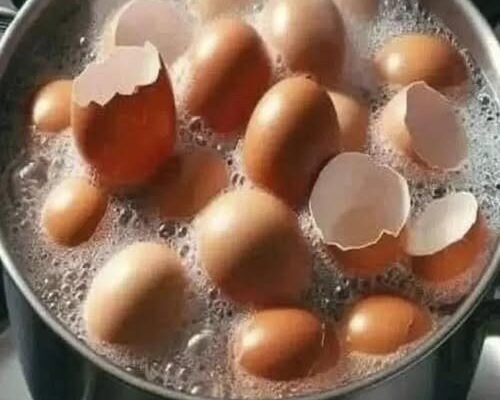Tossing out eggshells may seem natural, but these everyday scraps hold incredible potential for your home, garden, and even health. In the garden, crushed eggshells are a rich source of calcium carbonate, vital for plants like tomatoes, peppers, and eggplants prone to calcium deficiencies. Sprinkling crushed shells around plant bases gradually enriches the soil and helps prevent blossom end rot, while sharp fragments deter pests like slugs, snails, and some caterpillars, providing an eco-friendly alternative to chemical pesticides.
Eggshells also enhance compost, especially when crushed and mixed with coffee grounds, speeding decomposition and supporting soil microbes. For a quick plant boost, steep crushed shells in boiling water overnight to make a mineral-rich eggshell tea that acts like a natural multivitamin for your garden. Beyond gardening, eggshells serve practical household purposes: mixed with dish soap, their abrasive texture cleans stubborn grime from pots, pans, and coffee stains, and adding a few crushed shells to coffee grounds can reduce acidity and bitterness for a smoother cup. Creative uses abound as well—cleaned and dried shells can be turned into small candles, DIY air fresheners, or craft projects like mosaics, while halved shells make biodegradable seed-starting pots for seedlings that can be planted directly in soil. Health benefits are notable too; boiled and finely ground eggshells provide a calcium-rich powder suitable for smoothies or baking, potentially supporting bone density, and combined with baking soda and coconut oil, powdered shells can form a natural remineralizing toothpaste. The thin eggshell membrane can help draw out splinters or soothe minor inflammation, and at-home science experiments like soaking shells in vinegar offer educational demonstrations of chemical reactions. From nourishing plants to aiding wellness, cleaning, crafting, and learning, eggshells show that even small, everyday items can have immense value. Repurposing them reduces waste, saves money, and enhances your home, garden, and life in surprisingly powerful ways, proving that sustainability often begins right in your kitchen.
